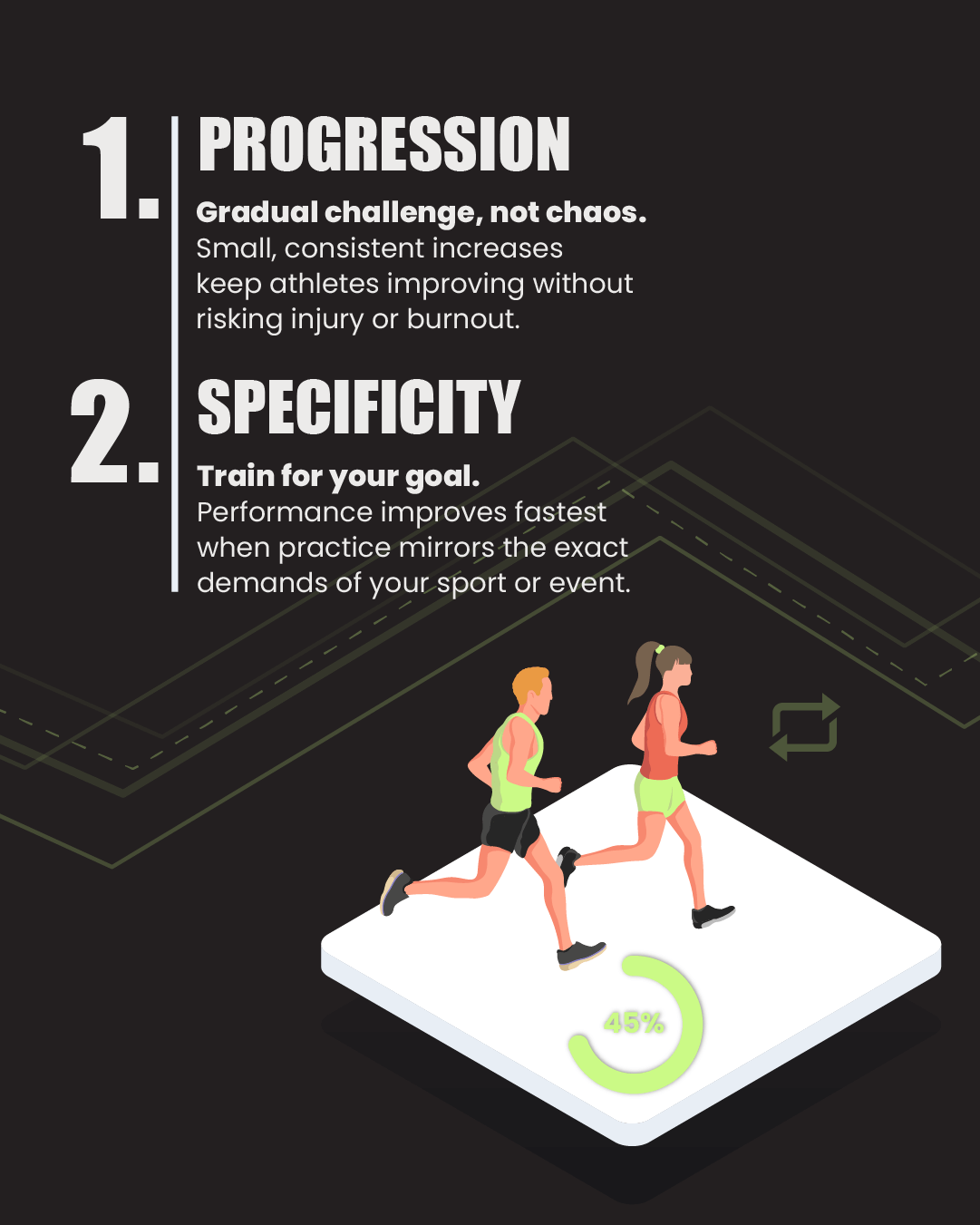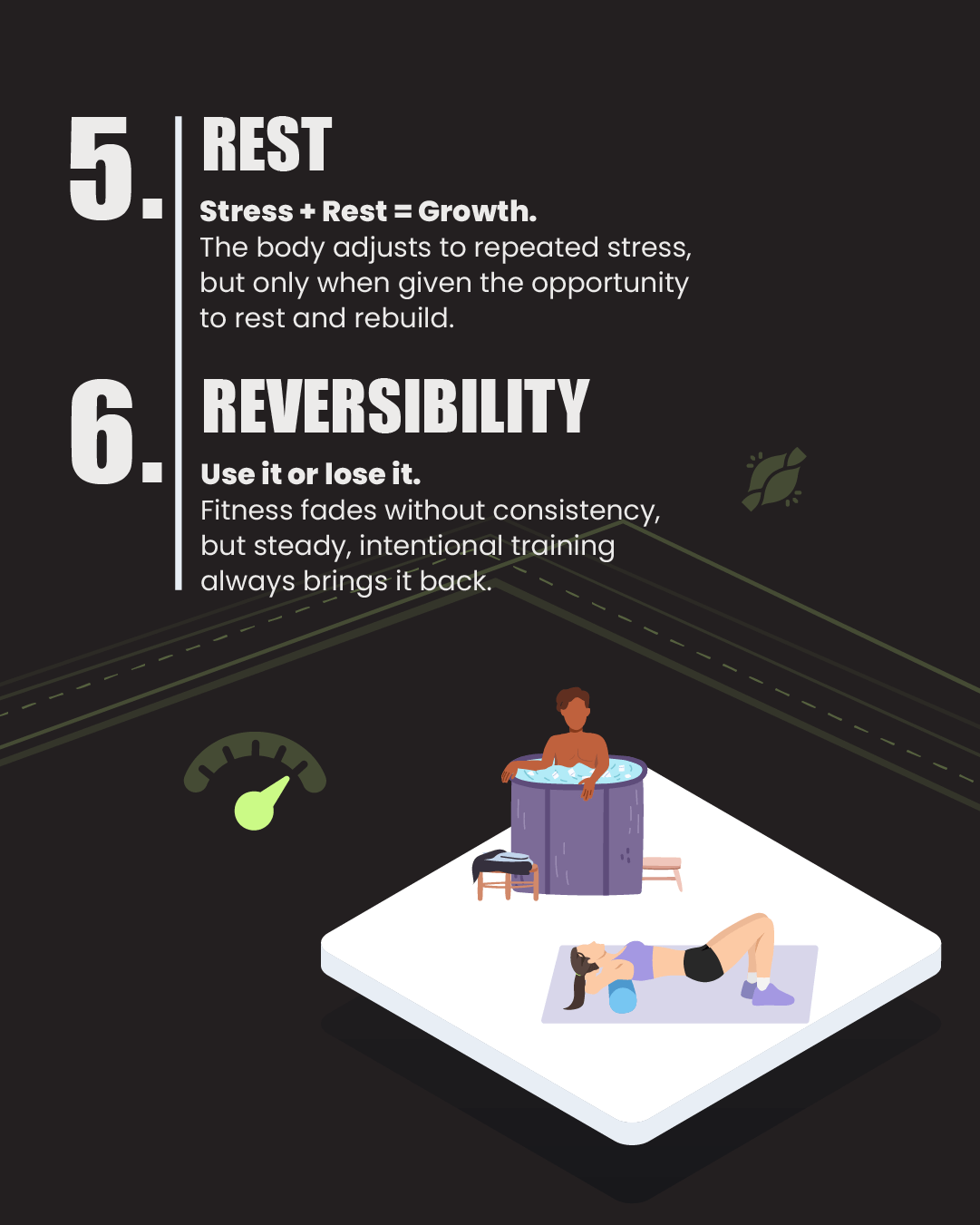Why Principles Outlast Programs: Building Endurance that Lasts
Ever felt lost in the sea of training plans, wondering which one is the best? The truth is, success doesn’t come from copying someone else’s workouts. It comes from the principles behind them.
At EndoGusto, we believe great coaching isn’t about chasing the latest template—it’s about using science and experience to guide athletes with intention. These foundations apply across every sport, every level, and every performance goal. They help athletes avoid burnout, stay consistent, and find joy in long-term progress.
The 6 Core Coaching Principles
1. Progression: Gradual Challenge, Not Chaos
The body adapts when you increase stress over time—but too much too fast leads to injury, and too little leads to stagnation. Progression is about finding the sweet spot: gradually increasing volume, intensity, or complexity so athletes keep improving while staying healthy. Think “steady climb,” not “sprint up the mountain.”
2. Specificity: Train for Your Goal
You get better at what you train. A 5K runner doesn’t need the same sessions as a cyclist training for a century ride. The closer training matches the demands of your event, the more it improves performance. Deliberate practice delivers deliberate results. Coaches help athletes focus their time and energy where it matters most.
3. Variety: Keep It Fresh
Too much repetition can breed monotony and overuse injuries. Variety keeps athletes engaged, motivated, and resilient. Well-planned variation—whether through cross-training, off-season shifts, or even playful sessions—prevents plateaus and keeps commitment high. It’s not about doing something different for the sake of it, but about keeping training fresh and sustainable.
4. Individualism: One Size Fits… No One
Every athlete is unique. Age, training history, recovery speed, and even psychology shape how someone responds to training. Personalization isn’t optional—it’s essential. The best coaching listens, adapts, and evolves with the athlete, using feedback to prevent stagnation or injury while maximizing growth.
5. Rest: Stress + Rest = Growth
Famed coaches and authors Steve Magness & Brad Stulberg have coined this “The Growth Equation.” Training isn’t just about stressing the body—it’s about recovering from that stress. When you balance challenge with rest, the body grows stronger. Miss either side—too much stress or too little rest—and progress stalls. Smart coaching means building recovery into the plan, not treating it as an afterthought, so that your athletes can flourish.
6. Reversibility: Use It or Lose It
Fitness fades when training stops. But the good news is: the body remembers. Consistency is more powerful than intensity, and even after setbacks, you can rebuild by starting again at progression. The key is acknowledging where you left off and scaling back before climbing again. Resilience matters more than perfection.
What This Means for Coaches (and Athletes)
Principles aren’t just science—they’re the hallmarks of lasting success. They guide athletes through ups and downs, help prevent burnout, and build stronger, healthier performers who stay in the sport they love.
Programs come and go. But when coaches and athletes work with these six principles—progression, specificity, variety, individualism, rest, and reversibility—they build more than fitness. They build resilience, joy, and performance that lasts.



